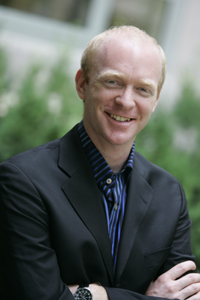
Classes Taught
Indiana University Trustees Teaching Award
Awarded 2007-2008 for C118
Awarded 2009-2010 for C118
Nominated for the Student Choice Awards program (Indiana University)
Teaching Email professorflood@gmail.com
Director of Graduate Studies (DGS)
Fall 2013-Spring 2019 (~220 students each year)
C500: Introduction to Research (Graduate Course)
Fall 2014 (52 students), Fall 2015 (44 students), Fall 2016, Fall 2017, Fall 2018
TT 5:15pm - 6:30pm
Team taught with Professors Cate Reck and Meghan Porter (2014-2017)
Course Description
This course is a two-semester course with the majority of meetings taking place in the fall. Topics will include, but are not limited to: Research poster sessions to choose a group; Teaching theories for discussions and labs; Successful grading; Classroom management; How to be a successful graduate student; Professional development; Successfully planning a five-year degree; Ethics recap.
M503: Supramolecular Chemistry (Graduate Course)
Spring 2015 (12 students), Spring 2017, Spring 2019
Lecture Tues/Thurs
Course Description
Teach the foundational concepts of supramolecular chemistry, review classic examples in the literature, provide hands-on access to the tools of supramolecular chemistry design and analysis, and to review the research frontier in the field
C118: Principles of Chemistry and Biochemistry II (Undergraduate Course)
Fall 2013 (200 students), Spring 2018
MWF 2:30pm - 3:20pm
Lab Lecture T 2:30pm - 3:20pm
Team taught with Professor Meghan Porter (Fall 2013)
Course Description
This course is an integrated lecture-laboratory course covering basic principles of chemistry and biochemistry and is designed to show the connections between chemical principles and important social, ethical, political, and sustainability issues. Advances in new materials and technologies will be introduced as these may contribute significantly to solving some of the world’s environmental and energy problems. The lectures and discussion sections will focus on applications of basic chemical principles and problem solving strategies. In the laboratory portion of C118, students will investigate problems related to course content.
M608: Soft Matter (Graduate Course)
Spring 2012 (10 students, Room A500, co-taught with Lane Baker)
Spring 2013 (12 students, Room A500, co-taught with Lane Baker)
MWF 11:15am - 12:05pm
Course Description
Soft materials to include liquid crystals, gels, hierarchically ordered systems, biological gels and non-equilibrium states, e.g., the polymerization and de-polymerization of microtubules that drive the separation of the chromosomes during cell division. Theory, design, assembly, characterization and applications will be presented. Characterization methods at IUB will be given emphasis.
C101: Elementary Chemistry I (Undergraduate Course)
Spring 2012 (140 students)
Fall 2011 (220 students)
Spring 2011 (160 students) Team taught with Professor Michael Edwards
Fall 2010 (237 students) Team taught with Professor Michael Edwards
MWF 1:25pm - 2:15pm
Course Description and Website
The course is designed as an entry point into chemistry at the College level and covers all the fundamental areas of elementary chemistry. Students who take this course have varied backgrounds and various goals. Some will end up taking more chemistry, such as C117, but many more will continue with science-based degrees and vocations.
C118: Principles of Chemistry and Biochemistry II (Undergraduate Course)
Fall 2007 (110 students), Fall 2008 (120 students), Fall 2009 (120 students)
MWF 2:30pm - 3:20pm
Lab Lecture T 2:30pm - 3:20pm
Team taught with Professor Jill Robinson
Course Description and Website
The course is designed for non-chemistry majors who will not be continuing with chemistry. The objectives are to place chemistry in a real context so that students can see their knowledge applied to improve the quality of life locally and globally. Topics include: polymers and plastics, genetic codes, nutrition, the air we breathe, global warming.
M800: Materials Chemistry Cume Replacement (Graduate Course)
Spring 2009 and Fall 2010 (four students)
Fall 2015 and Spring 2016 (five students)
Course Objective
To prepare students for their 5th-semester candidacy exam by establishing a course of studies, in consultation with their supervisor, on fundamental topics in their chosen research field. The supervisor will be asked for a series of fundamental topics, exemplary questions and resources a student might need to learn about those topics, e.g., textbooks, reviews and articles.
M502: Fundamentals of Materials II (Graduate Course)
Molecular and Nanoscale Materials - Synthesis and Properties
Fall 2005 (5 students), Spring 2007 (4 students), Spring 2008 (5 students), Spring 2009 (10 students)
Mondays and Fridays
Course Description
Synthesis, properties and applications of atomic and molecular materials: how the chemical and physical properties of atoms and molecules correlate with the resulting materials. Topics covered: classic metal materials and their structure and bonding, quantum confinement, surface energy and colloidal properties, nanoparticle synthesis and properties, self-assembled monolayers, carbon nanotubes, special topics on molecular materials. Students will also write and present a research paper on a nanomaterial of their choice.
